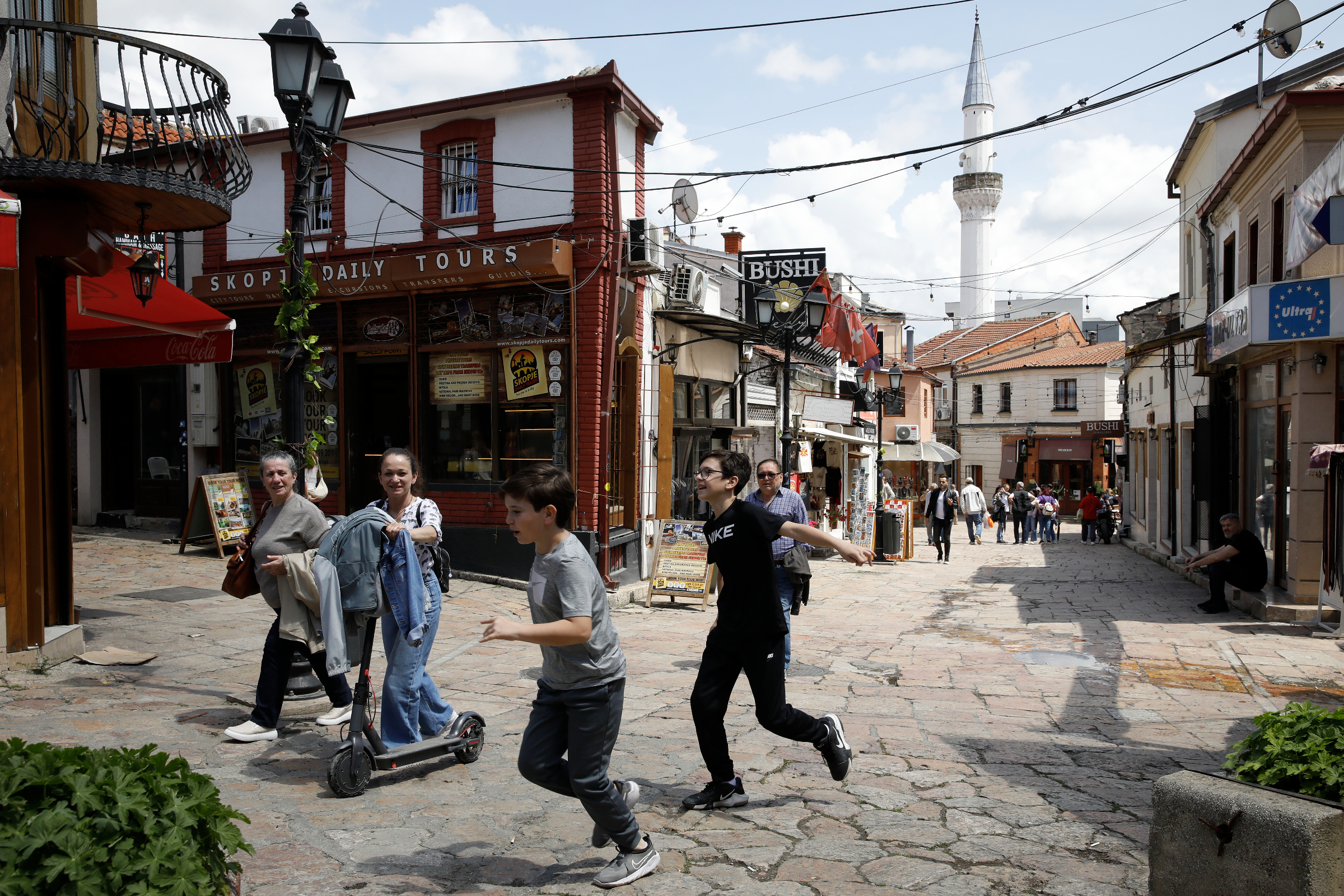Share post now
Article
Walk the talk, UNDP in action in North Macedonia
14.10.2024, International cooperation, 2030 Agenda
Development cooperation is repeatedly confronted with false statements and exaggerated expectations. A field report by Maxime Zufferey, Programme Associate at UNDP North Macedonia, shows what development cooperation can achieve and what it can contribute to achieving the Sustainable Development Goals.

Skopje the day after the election of North Macedonia's first female president. © Keystone/AP Photo/Boris Grdanoski
In the small, mountainous, landlocked Balkan country of North Macedonia – where over 100,000 Swiss residents have family ties –, the UNDP, as the lead UN agency for international development, occupies a central role in promoting sustainable development, good governance and social inclusion. A long-term commitment that had already begun long before the country's peaceful independence in 1991. In the 1960s, when the country was still part of the Socialist Federal Republic of Yugoslavia (SFRY), UNDP was entrusted with coordinating the reconstruction and recovery of the future capital Skopje, left in rubble by a devastating earthquake that severely affected the lives of its inhabitants and reshaped the city's urban development.
Since then, Skopje became a symbol of global solidarity, while disaster risk reduction (DRR) remains at the heart of the activities of the UNDP country office where I am based under the UNV program “Swiss Youth in the United Nations” financed by the Swiss government. For instance, within the Environment and Disaster Risk Management Unit, we are entering the final phase of a seven-year project funded by the SDC and SECO, which has improved flood resilience in the Polog region through a combination of hard (state-of-the-art infrastructure to strengthen resilience) and soft (enhanced regulatory environment and coordination of responsible bodies, raising public awareness or improving the early warning system) components. As such, the initiative aims to transform flood risk management in the region, moving from purely reactive flood responses to integrated systems for managing risks, vulnerabilities and the exposure of communities and assets in order to prevent losses and mitigate the impact of future floods.
But ultimately, the success and sustainability of these projects also depend on institutional capacity and the degree of decentralization of certain responsibilities. The decentralization process has accelerated since 2002, transferring many responsibilities from central government to local authorities. However, many municipalities - particularly small, rural and isolated ones - still have difficulty fulfilling all the functions assigned to them by law and in providing adequate services to each of their constituents. Therefore, within the Democratic Governance Unit, we are implementing the international award-winning “Empowering Municipal Councils” project, also funded by the SDC, which aims to strengthen local self-governance through enabled municipal councils capable of effectively fulfilling their functions of representation, oversight and enactment of municipal legislation. Capacity-building for municipal councilors is addressed through a series of comprehensive workshops covering topics such as fiscal decentralization and budget preparation, while the establishment of community forums in strategic planning at municipal level – based on Swiss methodology – strengthens citizen participation in decision-making, and the digital transformation process brings greater transparency and accountability to local governance.
Considering the scale of remaining challenges, ranging from raising social and economic opportunities for the local population, particularly groups at risk of exclusion, to systematically incorporating action on the pressing issues of air and water pollution, biodiversity loss and climate change, and as the country moves towards EU accession, UNDP's continued support for government institutions and civil society organizations in building an inclusive society - where everyone has access to services and can participate in the decisions that affect their lives - remains paramount.
Maxime Zufferey – Programme Associate (UNV) in Decentralization and Disaster Risk Reduction at UNDP North Macedonia, previously Junior Programme Officer at Alliance Sud